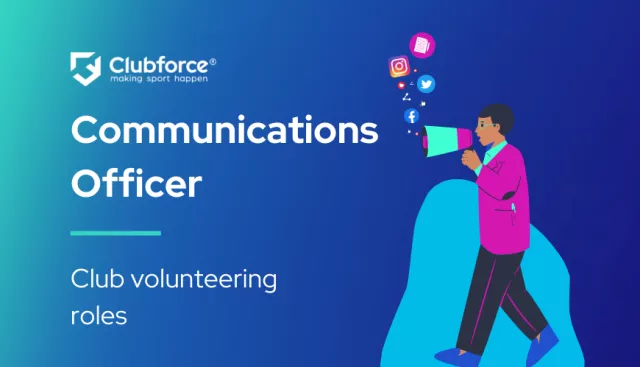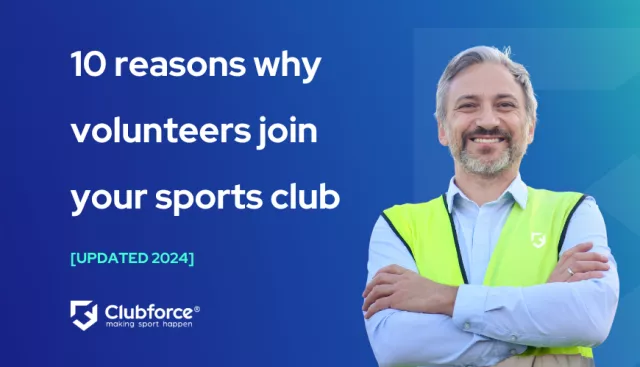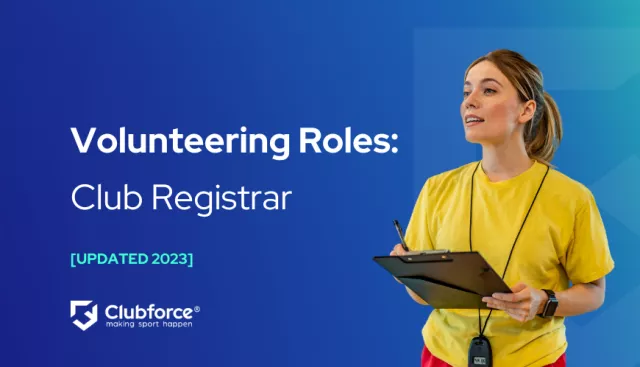
If you are new to a volunteering role at your club or if you are considering contributing to your club as a volunteer, this series may prove useful in assessing which role would suit you best.
Over the next few weeks we will look at the following roles:
The Club Communications Officer
What is a Communications Officer?
The Communications Officer role at any sports club plays a vital role in sharing club information with the general public. The Communications Officer will regularly work with other club officers, coaches and other club volunteers and act as the voice of the club when dealing with the media and wider public.
The Communications Officer is responsible for giving the public the best image of the club – this helps with attracting new members to the club and keeping existing members aware of the latest initiatives and engaged in club activities.
What are the duties of a Club Communications Officer?
The Communications Officer has a constant workload at any well-run amateur sports club. The effort relates directly to preparing for match days and more general day-to-day tasks that are covered in more detail below:
Preparing for match day
Depending on the size of the club and the level of competition they participate at, the Communications Officer role can be very busy during the playing season and much of the role at this time involves co-ordinating other volunteers at the club. Typical tasks around matchday include:
- On match day, if a club is hosting a game, the Communications Officer ensures that the pitch is ready to play on – grass cut, pitch markings, hanging nets, car park open etc.
- Announcing fixtures, club travel arrangements (where applicable) and match results to the supporter base and the wider community.
- The Communications Officer also takes responsibility for club appearance on match days – ensuring club kit (socks, shorts, jerseys etc.) are consistent.
- Sharing teamsheets with league /county board officials / local media organisations.
- Compile and/or contribute to match Communications Officer programmes and arrange for printing and distribution (or sale).
- Distributing club notes and match reports to local newspapers and smaller publications such as community newsletters and free-sheet newspapers.
General Communications Officer tasks
Away from matches, the Communications Officer is kept busy keeping the club in the public eye. Some common tasks would include:
- Keeping members and ex-pats up-to-date with news, events, camps and club fundraising through social media, app notifications and club newsletters
- Monitor social media to ensure the club is not inadvertently misrepresented
- Distribute club posters (e.g. fixture announcements, social events, lotto draws) to local businesses, schools and community centres
- Communicating with team and club sponsors (keeping sponsors up-to-date with the club Communications Officer’s progress)
- Communicating with parents of underage members (games times, training arrangements, tournaments etc.)
- Documenting communications with third parties and collating news for future reference
- For public events, on club grounds, the Communications Officer should ensure the club is well presented to the public (grounds/clubhouse etc.) and coordinate other volunteers in this effort
- Looking after and updating the club’s website with pictures and videos from all kinds of events, and even writing weekly articles about competitions, performances and more!
Through this constant routine, the club Communications Officer will build a network of media contacts which may prove useful if and when the club undertakes a specific fundraising venture that requires media coverage. It’s important to document this contact list to hand over to the incoming Communications Officer after the next AGM. This smooth transition helps to ensure continuity in the success of the club Communications Officer role.
What are the common traits of a Club Communications Officer?
Depending on the size of the club and the availability of volunteers, the person who acts as Communications Officer may fill other roles as well (e.g. Secretary) but ideally, the role would be specific to one person within the club. The Communications Officer is a public-facing role and as such, the volunteer should ideally be someone who enjoys dealing with people from all walks of life.
Communications officers also tend to be detail-oriented, have a good general awareness of local affairs in sport and are capable of managing a wide variety of tasks at the same time. The Communications Officer should display a high standard of written and verbal communication skills and be persuasive when dealing with other volunteers and external parties. Very often this role is filled by school teachers, office administrators, journalists and/or marketing professionals who would apply much of these skills in their day jobs as well.
It’s fair to say there’s a lot involved in this role which is usually done in limited time on evenings and weekends, so any additional support that can be given by other volunteers to assist the Communications Officer at your local club would be welcome.
For more information on how Clubforce can make the Communications Officer’s responsibilities easier fill out the form below and get a demo of the Clubforce platform.




